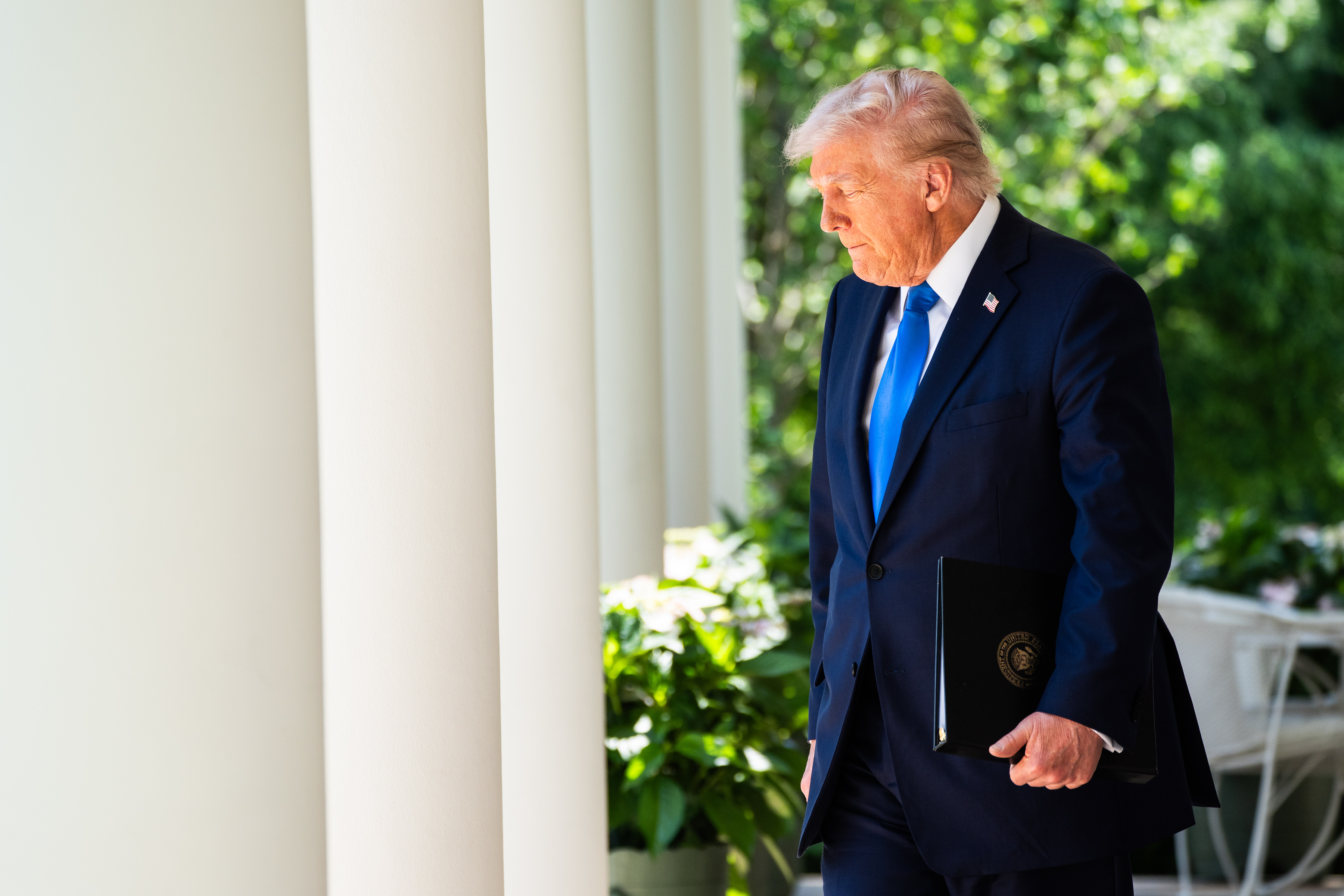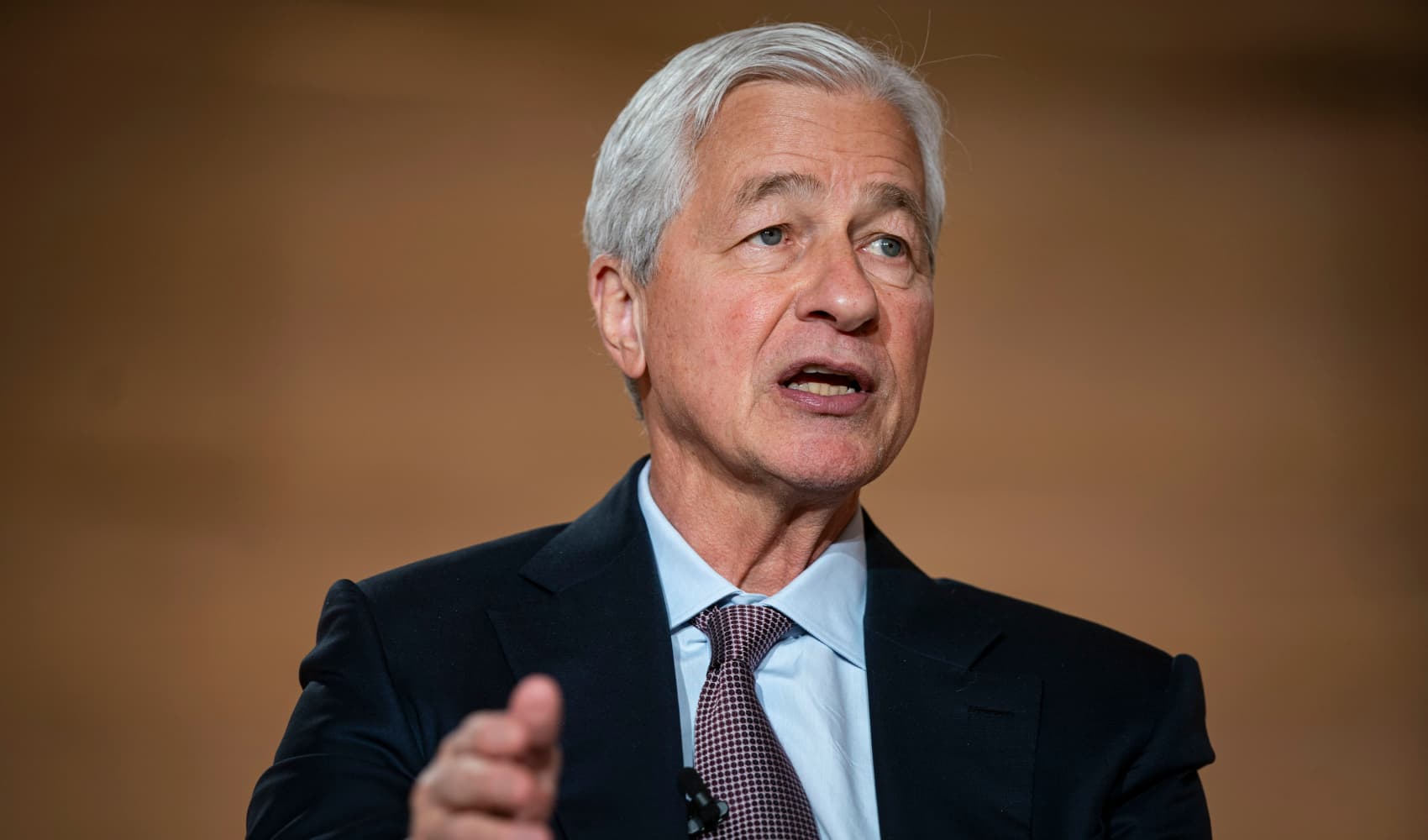Trump Rejects Recession Fears: Smart Strategy or Risky Gamble?
Trump Dismisses Recession Fears, Defends Economic Agenda: Is He Right?
Introduction: Decoding Trump's Optimism Amidst Economic Concerns
President Donald Trump, never one to shy away from controversy or back down from his convictions, has once again ignited debate. In a recent, wide-ranging interview, he dismissed concerns ranging from a potential recession to the inflationary effects of his tariffs and even the suggestion of a constitutionally impossible third term. Is this unwavering optimism justified, or is it a dangerous disregard for real economic challenges? This article dives deep into Trump's statements, exploring the economic landscape he paints and comparing it to the views of his critics. Let's unpack the claims and see if the emperor truly has clothes, or if he's just hoping no one notices he's walking around naked.
Trump's Economic Vision: Make America Great Again, Again
Trump's economic philosophy has always been rooted in the "Make America Great Again" mantra. It's a vision of reshoring jobs, boosting domestic manufacturing, and reducing reliance on foreign goods. But is this vision still relevant in today's complex global economy? And more importantly, is it working?
Tariffs as Tools: A Risky Gamble?
Trump's use of tariffs has been a cornerstone of his economic policy, aimed at forcing other countries to negotiate trade deals more favorable to the United States. However, critics argue that these tariffs ultimately hurt American consumers and businesses by raising prices and disrupting supply chains. Are tariffs a necessary evil for achieving long-term economic gains, or are they a self-inflicted wound? It's a bit like trying to fix a leaky faucet with a sledgehammer – you might stop the leak, but you'll probably break a lot of other things in the process.
Recession Fears: Is the Economy Headed for a Downturn?
The shadow of a potential recession looms large over the global economy. High inflation, rising interest rates, and geopolitical instability are all contributing factors. But Trump remains steadfast in his belief that the U.S. economy is strong and resilient. Is he accurately assessing the situation, or is he downplaying the risks?
Leading Economic Indicators: A Conflicting Picture
Economic indicators paint a mixed picture. Unemployment remains low, but inflation is stubbornly high. Consumer spending is still relatively strong, but business investment is slowing down. This conflicting data makes it difficult to predict the future direction of the economy with certainty. It's like trying to navigate a ship through a dense fog – you can only see so far ahead.
The Constitution and a Third Term: A Bridge Too Far?
The idea of Trump seeking a third term, despite the clear constitutional prohibition, has been floated by some of his supporters. While Trump has dismissed the notion, the mere suggestion raises concerns about his respect for democratic norms and the rule of law. Is this just political posturing, or is there a more serious intent behind it?
Checks and Balances: The Foundation of Democracy
The U.S. Constitution establishes a system of checks and balances to prevent any one person or branch of government from becoming too powerful. The two-term limit on the presidency is a crucial safeguard against tyranny. Violating this principle would undermine the very foundation of American democracy.
Foreign Policy: Navigating a Complex World
Trump's "America First" foreign policy has been characterized by unilateralism and a skepticism of international institutions. Has this approach strengthened America's position in the world, or has it isolated the country and weakened its alliances?
Diplomacy vs. Confrontation: Finding the Right Balance
The art of diplomacy involves finding common ground and building consensus. However, Trump has often favored a more confrontational approach, using threats and sanctions to achieve his goals. Is this an effective way to advance America's interests, or does it alienate potential allies and create unnecessary tensions?
Immigration: A Divisive Issue
Immigration has been one of the most contentious issues in American politics for decades. Trump's policies have focused on restricting immigration and increasing border security. Have these policies been successful in achieving their stated goals, or have they had unintended consequences?
The Economic Impact of Immigration: A Complex Calculation
Immigrants contribute to the economy in a variety of ways, including filling labor shortages, starting businesses, and paying taxes. However, they also place demands on public services, such as schools and hospitals. Determining the overall economic impact of immigration is a complex calculation that depends on a variety of factors.
Social Policy: Dividing Lines
Social policy issues, such as abortion, gun control, and LGBTQ+ rights, remain deeply divisive in American society. Trump's positions on these issues have generally aligned with the conservative wing of the Republican Party. But do these positions reflect the views of the majority of Americans?
The Role of Government: Individual Liberty vs. Collective Welfare
One of the fundamental debates in social policy is the proper role of government. Should the government protect individual liberty, even if it means allowing people to make choices that others find objectionable? Or should the government promote collective welfare, even if it means restricting individual freedom? There's always a delicate balance.
The "Make America Great Again" Movement: A Lasting Legacy?
The "Make America Great Again" movement has been a powerful force in American politics. It has mobilized a large segment of the population and helped Trump win the presidency. But will this movement remain intact beyond his term? That's the million-dollar question.
The Future of Conservatism: A Shifting Landscape
The conservative movement is undergoing a period of significant change. Traditional conservatives are grappling with the rise of populism and nationalism. The future direction of the conservative movement will depend on how these different factions resolve their differences. It’s a real ideological battle.
Approval Ratings: A Reflection of Public Opinion?
President Trump's approval ratings have fluctuated throughout his time in office. Are these ratings an accurate reflection of public opinion? And how do they compare to those of other presidents?
The Factors Influencing Approval Ratings: A Multifaceted Equation
Presidential approval ratings are influenced by a wide range of factors, including the state of the economy, foreign policy events, and domestic political controversies. Understanding these factors is crucial for interpreting the significance of approval ratings. You can't just look at the numbers; you need the context.
Executive Actions: Testing the Limits of Presidential Power
Trump has relied heavily on executive actions to implement his policies. Critics argue that some of these actions have exceeded the constitutional limits of presidential power. Where's the line between decisive leadership and overreach?
The Separation of Powers: Protecting Against Tyranny
The separation of powers is another crucial principle of the U.S. Constitution. It divides governmental authority among the legislative, executive, and judicial branches. This prevents any one branch from becoming too powerful and protects against tyranny. It’s a system designed for checks and balances.
Conclusion: Weighing the Optimism Against the Reality
President Trump's unwavering optimism in the face of economic concerns is a hallmark of his political style. However, it's crucial to weigh this optimism against the realities of the economic landscape, the constitutional limits of presidential power, and the potential consequences of his policies. Are his claims of economic strength supported by the data, or is he simply projecting an image of success? Only time will tell whether his gamble will pay off, or if it will lead to economic hardship. But until then, it's essential to remain vigilant and to hold him accountable for his actions.
Frequently Asked Questions
Here are some frequently asked questions regarding President Trump's economic agenda and the concerns surrounding it:
What exactly are tariffs, and how do they impact the economy?
Tariffs are taxes imposed on imported goods. They can raise prices for consumers, disrupt supply chains, and potentially lead to trade wars. While tariffs can protect domestic industries, they also can make those industries complacent and less competitive.
How concerned should I be about a potential recession?
Recessions are a normal part of the economic cycle, but they can be painful for individuals and businesses. It's wise to be aware of the risks and to take steps to protect your financial security, such as diversifying your investments and reducing debt.
Is it actually possible for a president to serve more than two terms?
No. The 22nd Amendment to the U.S. Constitution explicitly limits a president to two terms in office. Any attempt to circumvent this amendment would be a clear violation of the Constitution.
What are the potential benefits of President Trump's economic policies?
Proponents of Trump's policies argue that they can lead to increased job creation, higher wages, and a stronger domestic manufacturing base. They also believe that his policies can help to reduce the trade deficit and make the U.S. economy more competitive.
How can I stay informed about economic issues and make informed decisions?
It's essential to consume news from a variety of reputable sources, to be skeptical of claims that seem too good to be true, and to consult with financial professionals when making important decisions. Educating yourself is the best defense against misinformation.

